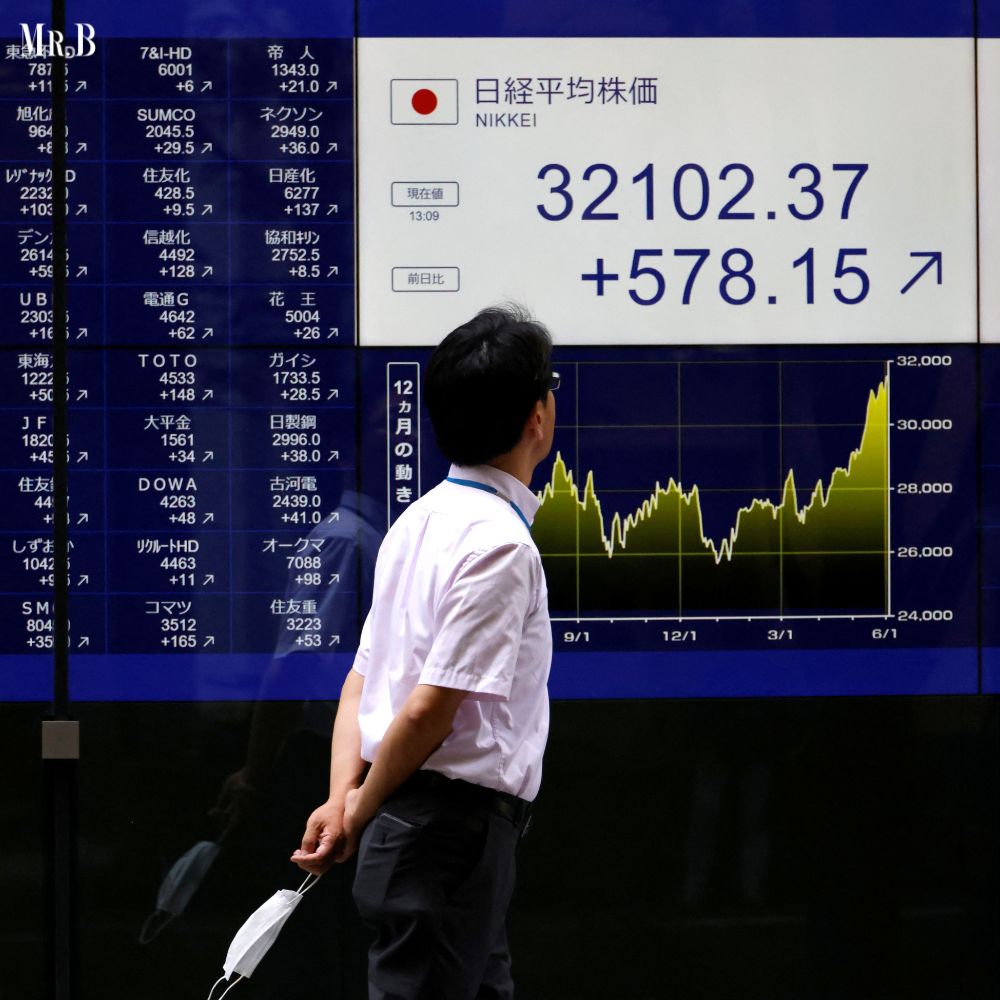Japan’s stock market, which surged in the first half of 2024, is expected to face a significant slowdown in the latter part of the year. According to Bloomberg’s survey of asset managers and strategists, the benchmark Topix index is forecasted to climb modestly by about 2.9% to reach 2,890 by year-end. Similarly, the Nikkei 225 Stock Average is projected to rise approximately 4.8% to 41,489. This growth outlook marks a notable deceleration compared to the impressive 18% surge witnessed in the first six months of the year. The recent milestone of the Topix surpassing its March peak to a 34-year high, driven primarily by the financial sector, underscores the market’s resilience amid global economic shifts.
Market Sentiment and Challenges
Market sentiment, however, remains cautious due to several key concerns. The persistent weakness of the yen against the dollar is a significant factor weighing on investor confidence. As of Friday, the yen traded at 161 to the dollar, with predictions suggesting a potential further slide to levels not seen since 1986, possibly reaching as low as 170 per dollar. While a weaker yen benefits Japanese exporters, it simultaneously fuels inflation through increased import costs, thereby impacting real wages and consumer spending.
Moreover, economic indicators such as inflation data for Tokyo, which rose in June, have heightened expectations for a potential interest rate hike by the Bank of Japan in July. This prospect, alongside subdued consumer and corporate spending trends, adds to the cautious outlook among market analysts and investors alike.
Japan’s Stock Market – Investment Strategies and Regional Comparisons
Amid these challenges, foreign investment trends reveal a shifting landscape. Foreign investors have been steadily divesting from Japanese cash equities for five consecutive weeks, the longest streak since March of the previous year. Some investors are redirecting their focus towards other Asian markets, viewing valuations in places like China, where the Shanghai Stock Exchange Composite index trades at a lower price-to-earnings ratio of 14 times compared to Japan’s 17 times, as more attractive.
Despite these shifts, optimism persists among certain quarters. Investment strategists like Alexander Cousley from Russell Investments Group LLC suggest that while Japan may lag behind China, its equity market still holds promise within broader Asia. This sentiment is echoed by institutions like BlackRock Inc., which remains bullish on Japanese equities, emphasizing the potential for earnings growth. Data compiled by Bloomberg indicates that earnings per share for the MSCI Japan index are expected to outpace global counterparts, with estimates pointing to a 16% increase over the next year compared to 8.5% for the MSCI World index.
In conclusion, while Japan’s stock market faces challenges from currency volatility, economic uncertainties, and shifting investor sentiments, the outlook remains cautiously optimistic. With ongoing discussions around monetary policy and economic indicators shaping market dynamics, stakeholders continue to navigate a complex landscape influenced by both domestic and global factors.
Curious to learn more? Explore this News on: Mr. Business Magazine







